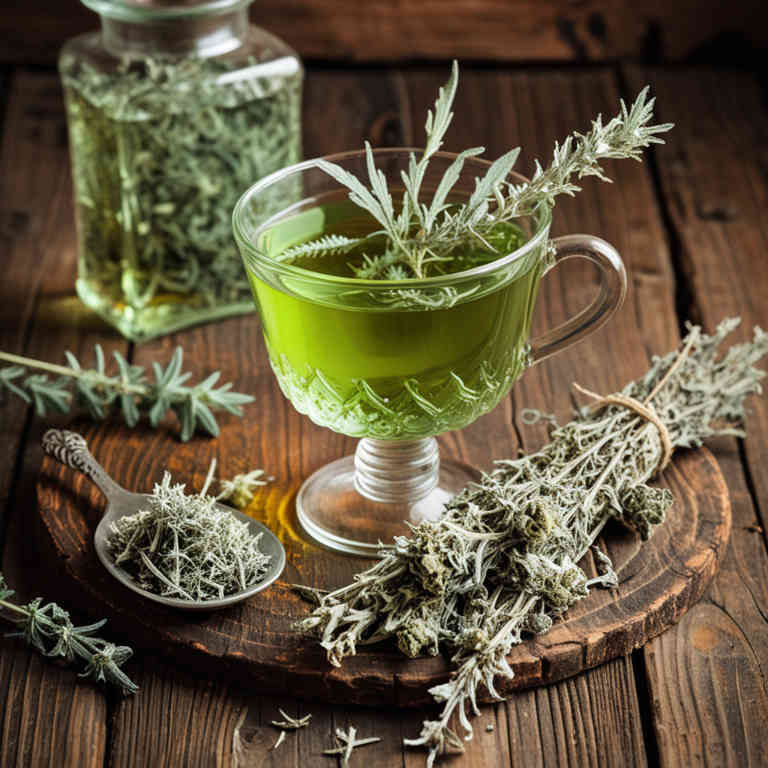Artemisia absinthium tea for medicinal use

Artemisia absinthium tea is a herbal preparation made from the dried leaves and flowers of the wormwood plant.
It has been traditionally used in herbalism for its purported digestive, antiparasitic, and mood-enhancing properties. This tea is often consumed to support liver function and alleviate digestive discomfort. It may also be used in small doses to help with insomnia or to induce mild sedation.
However, it should be used with caution due to its potential toxicity if consumed in large quantities.
Uses
Artemisia absinthium tea has been used to treat various ailments for centuries, with roots in ancient Egyptian, Greek, and Chinese medicine.
Historically, it was valued for its purported ability to aid digestion, relieve menstrual cramps, and even as a remedy for malaria. In traditional practices, it was also used to expel worms and as a tonic for the liver and gallbladder. Modern uses include its potential as a natural remedy for digestive issues and as a flavoring agent in absinthe, though its safety and efficacy remain subjects of ongoing research.
Today, it is often consumed as a herbal tea for its purported calming and detoxifying properties.
Benefits
Artemisia absinthium tea has health benefits such as aiding digestion, reducing inflammation, and supporting liver function.
It is traditionally used to relieve gastrointestinal discomfort and may help with symptoms of indigestion and bloating. The tea also contains antioxidants that may boost the immune system and protect against oxidative stress. Some studies suggest it may have antimicrobial properties that could help fight infections.
However, it should be consumed in moderation and under the guidance of a healthcare professional.
Constituents
Artemisia absinthium tea active constituents include compounds such as thujone, flavonoids, sesquiterpene lactones, and essential oils.
These components are believed to contribute to the tea’s potential health benefits, including antimicrobial, anti-inflammatory, and antioxidant properties. Thujone, in particular, is known for its stimulating effects on the nervous system. The tea may also support digestive health and help alleviate symptoms of certain ailments.
However, due to the presence of thujone, it should be consumed with caution and in moderation.
Preparation
To make Artemisia absinthium tea, start by gathering fresh or dried Artemisia absinthium leaves, ensuring they are free from contaminants.
Measure about 1 teaspoon of the dried leaves for each cup of water. Boil water and pour it over the leaves, allowing the mixture to steep for 10 to 15 minutes. Strain the liquid to remove the plant material, and enjoy the tea either warm or chilled.
This herbal tea is known for its earthy flavor and has been traditionally used for its potential health benefits.
Side Effects
Artemisia absinthium tea may lead to liver toxicity, gastrointestinal distress, and allergic reactions in some individuals.
It contains compounds that can be harmful to the liver, especially with prolonged or high-dose use. The tea may also cause nausea, vomiting, and headaches in sensitive individuals. It is not recommended for pregnant or breastfeeding women due to potential risks to the fetus or infant.
People with existing liver conditions should avoid this preparation altogether.